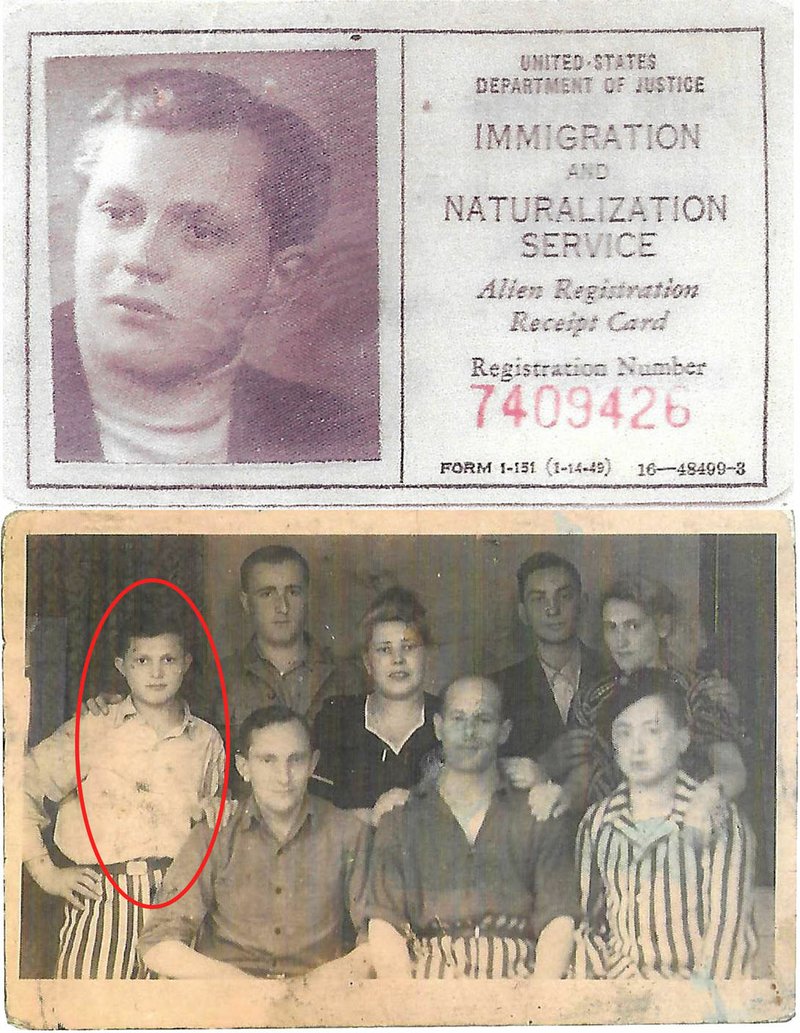"You think that their dying is the worst thing that could happen. Then they stay dead."
-- Donald Hall
David Broidis was just 13 years old when his father died. They came for his dad while he was working, pulled him right off the street and loaded him into a truck that was quickly filled with other terrified men. And then they were gone. Disappeared. Young David's ceremony of losses was just getting started.
David was born on Dec. 18, 1927, in Vilnius, Lithuania, the youngest of 10 brothers and sisters. His father was a shoemaker and his mother a butcher in this prosperous town of more than 150,000 people. The Jews started moving to Lithuania in 1567, arriving first as merchants, artisans and traders, and over time Vilnius became known as the "Jerusalem of the North." It boasted more than 110 synagogues and a library which housed the world's largest collection of Yiddish-language books. By 1940, the Jewish population in Vilnius numbered 60,000 people. That would soon change.
The Broidis family lived a nice middle-class life: There were visits to the Baltic Sea in the summer and ice skating (David's favorite) in the winter. On June 22, 1941, German forces entered Vilnius as part of their invasion of Russia. Almost immediately, Jews started being picked up off the street, taken to the outskirts of town and executed. By the end of 1941 more than 32,000 Jews from Vilnius had been shot -- murdered for the sin of existing.
David, his mother, and one sister were placed in the ghetto area that was established in the city in August for all the remaining Jews. He was put on work details at first, priding himself on stealing potatoes while out during the day to bring home to his waiting mother and sister. Then, on Sept. 15, the Germans decided to kill all remaining Jews living in the ghetto who did not have a work permit. When David came home later that night, his mother and sister were gone, disappeared. He was now alone.
Sent to his first camp, he lied to the Germans and said he was 16. Furious that he was lying, one SS officer punched out his front teeth and stomped on him with his boots. The concentration camps he lived in read like an obscene travel itinerary: Stutthof, Bergen-Belsen and Buchenwald. If you got sick, you were killed. If you got injured, you were killed. If you didn't work hard enough, you were killed. David developed a strategy; fed one meal a day (in the morning) of bread and a thin soup, he would save the bread for the night when he returned. Everywhere around him friends died every day. Everywhere around him was the smell of burned bodies. Liberation came on April 11, 1945, when the Allied soldiers came. Of the 10 children, incredibly three of his siblings had survived. Everyone else was gone.
In 1950, David decided to make a new start in America. Without a word of English and no money, he got off a boat in New York City with a letter from a niece who lived there offering to let him stay with her family. Walking around Brooklyn, he poked his head in a furniture shop and asked if they had work. He would stay there the next 40 years.
David married happily and had three kids whom he adored. For him family was everything. He loved America, bowling, the Mets, watching All in the Family, and making breakfast. When he made his first $100, he folded the bill into eighths and stuck it in his wallet. "I never want to be without money again," he told his son. When he died in 2012 at the age of 84, his son Gary found a Ziploc bag of more than $20,000 worth of folded hundreds.
I am telling this incredible story because one day last December a chance encounter with his son led to him showing me a 1/8th folded hundred dollar bill he keeps in his wallet now, a legacy from a man who refused to disappear. Transcendent. Immortal. Unbreakable.
NAN Our Town on 02/21/2019

